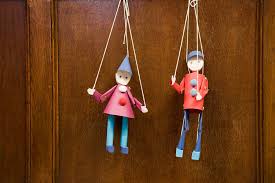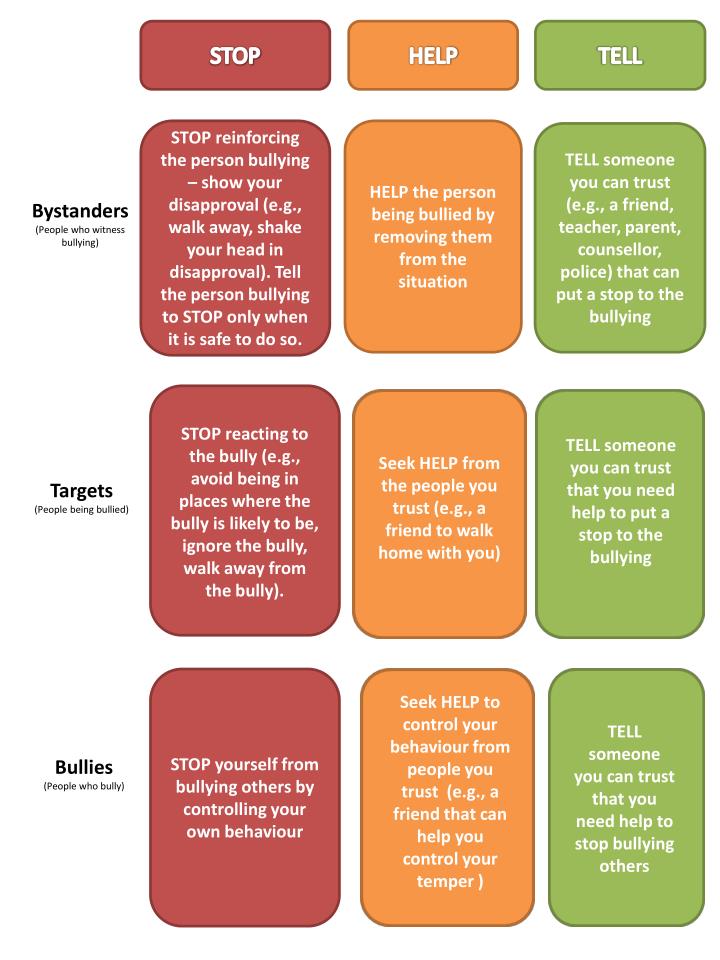The word control can be a scary thing. It often leaves us feeling trapped and unable to breathe. In this blog post, we will discuss the signs of being too controlling, some reasons why people are so controlling. We will also touch upon what the upsides and downsides of being controlling are. Finally, we will give strategies on how you can stop being a controller (how to stop being controlling in your life) in your life.
Contents
What Is Controlling?
 People who are controlling, in general, might micromanage their partner, constantly checking in or questioning what they or others are doing. They may also give unsolicited advice, try to dictate how the other person should feel or behave, or use guilt and manipulation tactics to get what they want.
People who are controlling, in general, might micromanage their partner, constantly checking in or questioning what they or others are doing. They may also give unsolicited advice, try to dictate how the other person should feel or behave, or use guilt and manipulation tactics to get what they want.
Often they feel like they’re doing something for the greater good. As, they think that if their partner would just do what they say, everything would be okay and better off in general. Instead of focusing on what you can control (yourself), a controlling partner is constantly focused on trying to get other people to behave in the way they want them to.
Why Are People Controlling?
There are a few reasons why people might be controlling. Some of these include:
Circumstances
They’re going through some trauma or hardship—a loss, divorce, death in the family, etc.—and they don’t know how else to cope with it. They feel like their lives have been turned upside down and they’re trying to control the only thing that feels within their grasp.
Upbringing
They grew up in a household where one or both of their parents were controlling, so it’s normal for them because this is how they learned love should be shown. They might not realize any other way exists at all!
Insecurities
Their insecurity makes them feel like they need to be in control of everything and everyone around them. They’re scared of not being able to handle things on their own, so they take over.
Personality Type
They have a really strong Type A personality and are just really driven and ambitious in all areas of life.
Being Controlling
Upsides
There are some upsides as to why people might be controlling. Here are just a few:
- They’re extremely responsible and reliable. If something needs to get done, they’re the ones who will do it if no one else can or wants to. They don’t mind taking charge of things and helping others when needed!
- Since they expect perfection from themselves and love to take care of things, they’re usually really good at whatever it is that they do. They put their all into everything and are always successful!
Downsides
While there can be some upsides as to why people might be controlling, this type of behavior has more downsides than anything else! It’s important to be aware of these so that you can work on changing them if needed.
Some of the biggest downsides to being controlling are as follows:
- It can be frustrating and overwhelming for their partners who just want to live a normal life without always feeling like they’re being controlled.
- They can come across as bossy, demanding, and unyielding, which can make it hard for people to want to be around them.
- Their controlling behavior can often lead to arguments and fighting, as neither person is ever happy with the other’s choices or way of doing things.
- It can be tough for controllers to relax and let go, as they’re always tightly wound up and ready to take charge.
- They can be inflexible and stubborn, which makes it hard for them to change their ways or see things from another person’s perspective.
Signs
You’re Controlling

If you feel like your partner is constantly trying to change the way they act, think, or behave, that’s a sign of control. You may also be controlled if you find yourself dictating how your partner spends their time. If it feels like no matter what they do or say, there’s always something else you want them to change about themselves, you might be a controlling partner.
Furthermore, here are the few signs of a controller:
- Feel the need to always be right.
- Have a hard time accepting your partner’s opinions or feelings.
- Find yourself getting angry when your partner doesn’t do what you want them to.
- Resort to threats, ultimatums, or guilt trips to get your way.
- Rely on your partner to do things for you, such as clean the house or take care of bills.
Your Partner Is Controlling

There are a few signs that you might be in a controlling relationship. If your partner does any of the following things, they may have some serious control issues:
- Aren’t willing to compromise or change their mind about something no matter how much time passes.
- Push other relationships aside just so that they can prioritize yours.
- Need to know where you are and what you’re doing at all times.
- Criticize the way that your home looks or how it’s decorated.
- Accuse their friends of trying to take them away from you.
- Be jealous, possessive, clingy, or needy when they see you spending time with other people.
Areas In Life
Where You Can Be Controlling
While people can be controlling in any area of their lives, there are a few specific areas where it often pops up. Here are just a few:
Work
They’re the boss and like to be in charge of everything that’s going on. They want things done their way and don’t always take others’ opinions into account.
Relationships
They want their partner to conform to all of their needs and wants, which can be exhausting for the other person. Having a healthy relationship means being able to have your own opinions!
Homelife
Controlling behavior frequently spills over into home life as well. They’re always picking up after family members or reorganizing everything because it’s just not perfect to them the way it is.
Where You Should Be Controlling
There are a few areas in life where it’s healthy to be controlling! Here are just a few:
Your work
You should be in charge and have a clear vision for what you want your career to look like. This level of control will help you achieve your goals.
Finances
It’s important to be mindful and careful when it comes to money, and this includes knowing exactly where your hard-earned dollars are going.
Your health
Being in control of what you eat and when you exercise will make a big difference when it comes to maintaining good mental and physical health!
Where You Should Not Be Controlling
While there are some areas where you can be controlled, there are plenty of other areas that it’s not okay to control. Here are just a few:
Other people
It’s not your job to make sure everyone around you is doing what they’re supposed to be doing! You should only work on bettering yourself and taking care of yourself.
Your own emotions
You can’t always control how you feel, and trying to do so will only lead to frustration and anger. Let yourself feel what you’re feeling and don’t try to bottle everything up.
The future
Nobody knows exactly what’s going to happen in the future, so it’s not wise or helpful to try to control it. Just go with the flow and let things happen as they will.
How To Stop Being Controlling: Tips And Strategies

If you recognize that you have some tendencies towards controlling behavior, don’t worry—you can do something about it. Here are a few tips and strategies for how to stop being controlling:
Acknowledge that you have a problem
The first step is admitting that you have a problem with control. This can be hard, but it’s essential if you want to change your behavior.
Talk to a professional
If you find that you can’t seem to stop controlling your partner, it might be helpful to talk to a therapist. They can help you understand the root of your control issues and give you tools for how to deal with them.
Make a conscious effort to let go
Once you know what your triggers are, it’s important to make a conscious effort to let go. This means being aware of the way you try to control your partner and making a conscious choice not to do it.
Set healthy boundaries instead of rules
Make sure that when you set new boundaries for yourself, they are things that feel good rather than restrictive or limiting in some way. Healthy relationships come from mutual respect, trust, and acceptance.
Take care of yourself
Remember that your partner isn’t the only person in your life who deserves your time and attention—you do too! Make sure that you’re putting energy into taking good care of yourself so you feel fulfilled in other areas of life apart from just being with someone else all the time.
Talking To a Professional
If you feel like your controlling behavior is making your loved one’s life harder, it might be helpful to talk to a professional. They can help you learn about what drives this type of behavior and give you tools for how to change the way that you act in relationships.
Therapies For Decreasing Controlling Behavior
There are several types of therapies that can help people get better at controlling their behavior.
Cognitive Behavioral Therapy (CBT)
Cognitive Behavioral Therapy (CBT) is one example, where the therapist works with you to identify your triggering points and gives you strategies for how to change negative patterns in relationships.
Dialectical Behavior Therapy (DBT)
Other methods include Dialectical Behavior Therapy (DBT), which helps individuals work on increasing their ability to deal with intense emotions. This can be especially helpful if you tend to be controlling as it involves learning how to manage the anger and frustration that comes from having this type of behavior.
Mindfulness-Based Cognitive Therapy (MBCT
Another option is Mindfulness-Based Cognitive Therapy (MBCT), which focuses on helping people identify ways for coping with negative thoughts and feelings in a more healthy way.
NOTE: There is no one-size-fits-all solution when it comes to therapies for controlling behavior, but the important thing is that you find something that works for you and your unique situation.
Controlling and Perfectionism

Many people who are controlling also have perfectionist tendencies. This might manifest itself in a few different ways:
- Need everything to be perfect, and if it’s not, they’ll become really upset and start to control things even more in an attempt to fix the situation.
- Are never happy with their work or efforts, no matter how many times they might have checked and re-checked it.
- Constantly compare themselves to others and are never satisfied with where they stand about others.
Conclusion
If you recognize that your relationship is suffering because of some controlling behavior, there are ways to change it. Just remember that communication and trust will be key in any healthy relationship moving forward—and if either one of those things goes out the window, then the problem might not ever get fixed.
Overall, controlling behavior is not healthy for your partner or you. It can lead to resentment and unhappiness over time which isn’t good for anyone! If you feel like this might be an issue in your relationship.
It’s important to talk about it with your partner. They may also want to seek the help of a professional to get some guidance. By working on yourself and your controlling behavior, you can have a more positive and healthy relationship for both of you to enjoy.
If you are looking for affordable Online Counseling MantraCare can help: Book a trial therapy session


